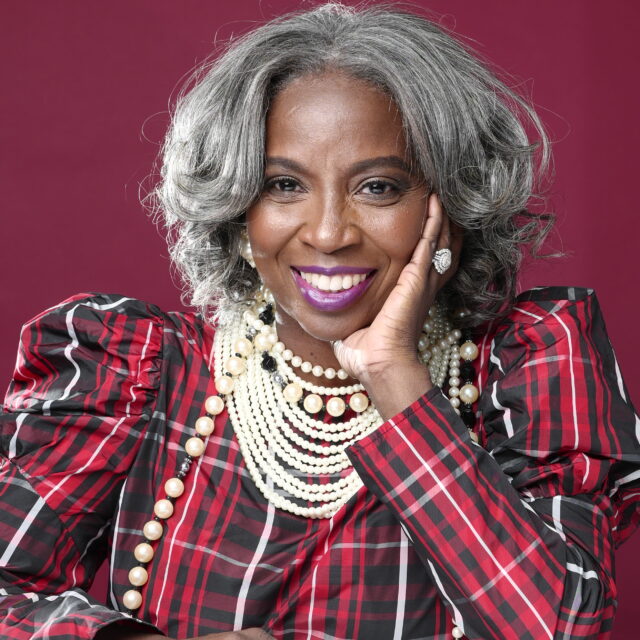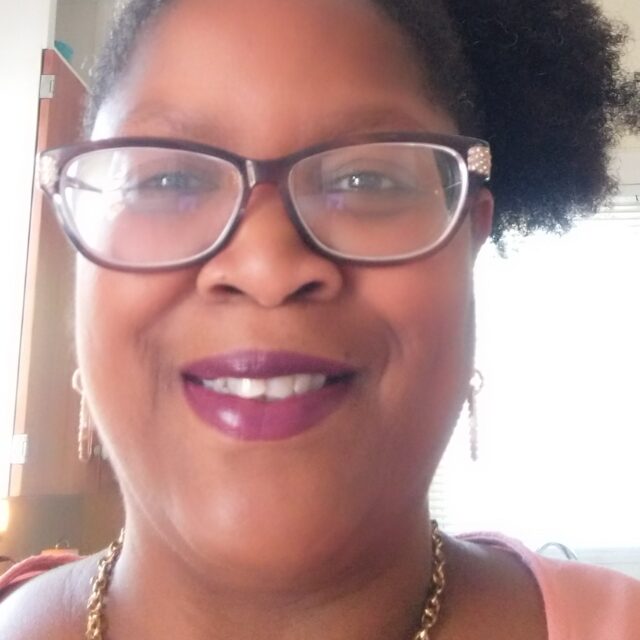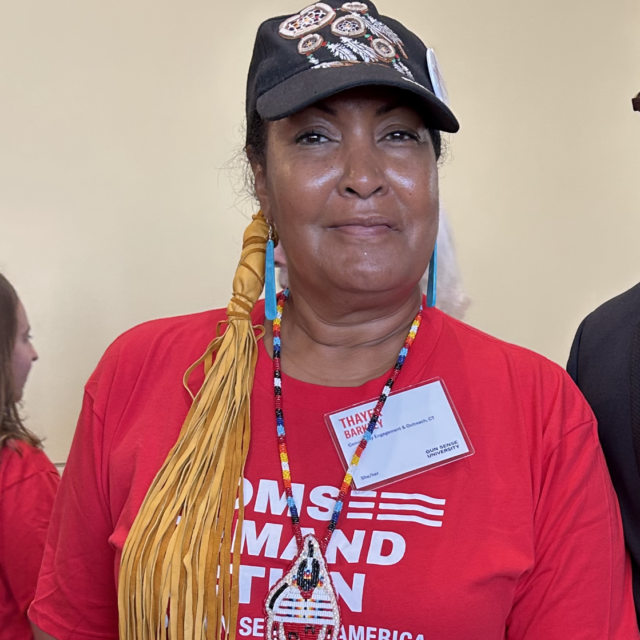Phumulani: A Future Where Every Community Is Shielded From the Scourge of Gun Violence

By: Comfort Dondo 2.27.2024
I am the founder and executive director of Phumulani: Minnesota African Women Against Violence. At Phumulani, we believe that true prevention of violence goes beyond merely addressing its immediate symptoms. Instead, it necessitates a holistic approach that tackles the underlying factors contributing to community vulnerability and distress. By prioritizing emotional and spiritual well-being, sustaining families, and enhancing the quality of life and neighborhoods, we can cultivate environments where violence is less likely to take root.
Investing in holistic healing is an investment in the long-term sustainability and resilience of communities. When individuals and families are equipped with the necessary resources and support systems to thrive, they are better equipped to navigate challenges and build brighter futures for themselves and future generations.
A holistic approach to violence prevention recognizes the interconnectedness of various social determinants, including access to economic opportunity, health care, education, and housing. By addressing these broader systemic issues, we can create conditions conducive to community well-being and flourishing.
My journey to founding Phumulani began in 2018, during a time of personal upheaval. I fled from a situation of abuse and found myself facing homelessness and grappling with feelings of invisibility and marginalization. In that moment of vulnerability, I realized there were countless others like me: African women whose voices were often unheard and whose struggles were often unseen by mainstream organizations and services.
This realization ignited a fire within me to create a space where African women could feel safe, supported, and empowered to reclaim their voices and their rights. I founded Phumulani with the belief that culturally specific approaches are essential in addressing the unique challenges faced by African women experiencing violence. Our organization is dedicated to providing culturally sensitive and trauma-informed services that center the experiences and needs of African women in Minnesota.
The most gratifying aspect of the work we do at Phumulani is witnessing the transformation in the lives of the women we support. I am inspired every day by the resilience and strength of the women we serve. Despite facing immense obstacles, they demonstrate remarkable courage and determination to rebuild their lives and advocate for change. Seeing them find their voices, regain their confidence, and take control of their futures is incredibly rewarding. Knowing that our organization plays a role in empowering them to break free from violence and achieve independence fills me with a profound sense of purpose and fulfillment.
One transformative highlight from our work at Phumulani is the implementation of our Healing Circles program. These circles have become a powerful space for survivors within our community to come together, break bread, and share their stories in a safe and supportive environment.
One particularly poignant moment occurred during a recent Healing Circle session. A survivor—let’s call her Sarah—had been struggling with feelings of isolation and shame following her experience of trauma. She had been hesitant to attend the circles but, encouraged by a friend who had found solace in them, Sarah decided to take a leap of faith and join.
Throughout the session, Sarah found the courage to share her story for the first time. As she spoke, tears flowed freely, but she was met with nothing but empathy and support from the group. Others shared their own experiences of pain and resilience, creating a profound sense of connection and solidarity among the participants. By the end of the Healing Circle, Sarah expressed a sense of relief and empowerment she had not felt in years. She remarked that, for the first time, she no longer felt alone in her journey toward healing.
This story highlights the transformative power of community and the healing potential of sharing our stories in a supportive space. It reinforces our belief in the importance of culturally specific programs like the Healing Circles in addressing the unique needs of African women survivors in our community.
We are committed to continuing this vital work and providing a refuge of healing and hope for survivors like Sarah. The funds we received through the Everytown Support Fund Domestic Violence Grant Program have increased our capacity to do outreach on gun violence prevention (GVP) among African immigrant communities in Minnesota.
“With heightened awareness, advocacy, and collaborative efforts, we’re poised to build a future where every community is shielded from the scourge of gun violence.”
Comfort Dondo, founder and executive director of Phumulani: Minnesota African Women Against Violence.
The theme “Yesterday, Today, and Tomorrow: A Legacy of Black GVP Advocacy” that Everytown is marking for Black History Month beautifully encapsulates the journey of the GVP movement. Despite the hurdles and obstacles, hope is abundant when we reflect on the past, present, and future of this vital cause.
Reflecting on yesterday, we witness a legacy of resilience and determination within Black communities in the face of gun violence. From the Civil Rights era to contemporary activism, Black individuals and organizations have been the driving force behind advocating for change and demanding justice. Their unwavering courage and steadfast leadership have paved the way for the GVP movement we know today.
In the present, we witness an encouraging momentum and solidarity within the GVP movement. Voices from diverse backgrounds are uniting to advocate for substantive reform. Black activists and organizations continue to lead the charge, shedding light on the disproportionate impact of gun violence on communities of color and championing policies that tackle systemic issues head-on.
As I think of current leaders in this space, I want to elevate Elder Mother Atum Azzahir, the chief executive officer of the Cultural Wellness Center. Her transformative scholarly work has been creating healing spaces and wholeness for Black African descendants in Minnesota and across the country.
Looking ahead to tomorrow, there is optimism that the legacy of Black GVP advocacy will inspire continued progress and transformation. As more individuals recognize how gun violence intersects with racism, poverty, and inequality, momentum is building for comprehensive solutions that address the root causes of these issues. With heightened awareness, advocacy, and collaborative efforts, we’re poised to build a future where every community is shielded from the scourge of gun violence.
Gun violence prevention is not just a policy issue; it’s a matter of justice, equity, and safeguarding communities. Elevating Black voices in this movement is essential for several reasons:
-
Disproportionate Impact
Gun violence disproportionately affects Black communities, who experience higher rates of firearm-related deaths and injuries. Elevating Black voices ensures that the unique challenges faced by these communities are acknowledged, addressed, and incorporated into comprehensive solutions.
-
Intersectionality
Gun violence intersects with systemic issues such as racism, poverty, and inequality. Black voices bring a nuanced understanding of these intersecting factors, allowing for more holistic approaches to prevention that tackle root causes.
-
Cultural Competence
Black leaders and advocates possess cultural competence, enabling them to develop strategies that resonate with their communities. By involving Black voices, we ensure that prevention efforts are culturally sensitive, effective, and tailored to the specific needs of Black individuals and families.
-
Community Empowerment
Elevating Black voices empowers communities to take an active role in shaping and implementing prevention strategies. This fosters a sense of ownership, trust, and collaboration, essential elements for creating sustainable, community-driven solutions.
-
Policy Advocacy
Black leaders play a pivotal role in advocating for policy changes that address gun violence. Their perspectives are instrumental in shaping legislation that not only addresses the immediate impact of gun violence but also dismantles the systemic barriers that contribute to its current prevalence.
-
Representation Matters
Representation in the gun violence prevention movement is crucial for inspiring future advocates. Seeing Black leaders at the forefront not only validates the experiences of those affected by gun violence but also encourages broader participation in advocacy efforts.
-
Building Solidarity
Elevating Black voices fosters solidarity within the broader GVP movement. It emphasizes that this issue is collective, requiring diverse perspectives and experiences to effectively combat the multifaceted challenges posed by gun violence.
What gives me hope in this movement is the remarkable resilience of communities, the unwavering dedication of activists, and the boundless potential for transformative change. By honoring the legacy of Black GVP advocacy and joining forces in pursuit of a shared vision, we can forge a future where every individual thrives in safety and dignity.
Elevating Black voices is not just about diversity; it’s about recognizing the unique experiences, challenges, and solutions that Black communities bring to the forefront of the gun violence prevention movement. It’s a step toward creating a more just and inclusive society where every individual can live free from the threat of gun violence.
Author
-
Comfort Dondo
Comfort Dondo is the founder and executive director of Phumulani: Minnesota African Women Against Violence. She is the author of Facing the Giants: A Journey to Freedom From Domestic Abuse and the forthcoming The Gift in Pain, and she is featured in Dr. Tererai Trent’s Sacred Promise: An Anthology.





